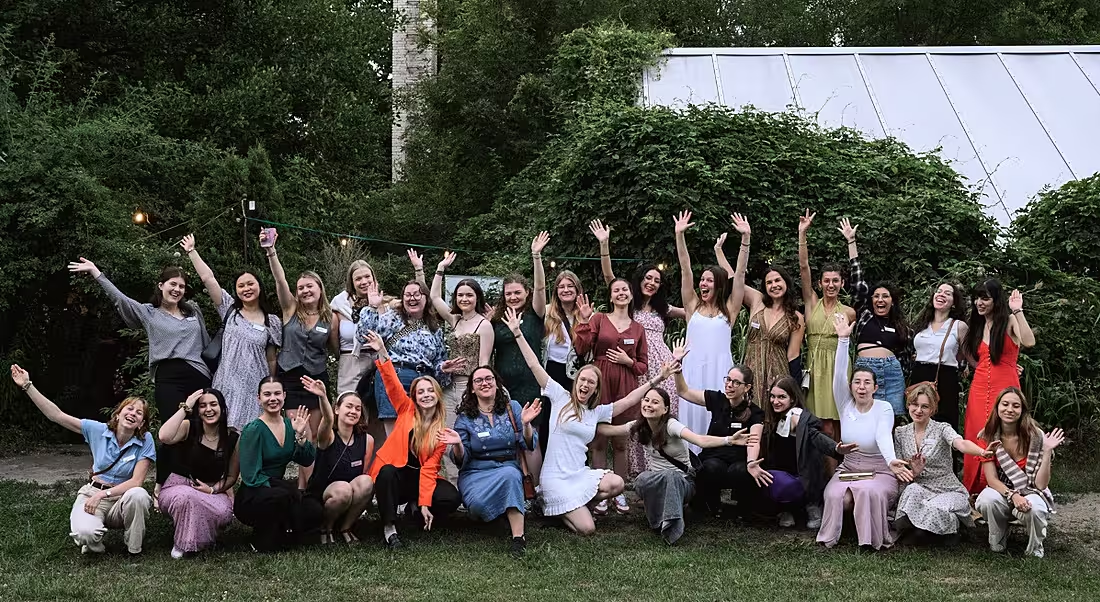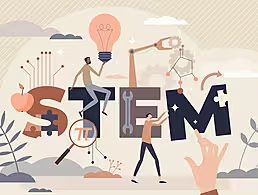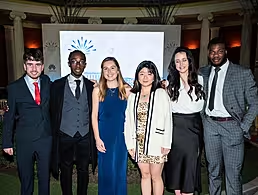Huawei brought together 29 exceptionally talented and driven young women from all across Europe to spend a week in Warsaw, for the purpose of learning, collaborating and ultimately cultivating and fortifying the skills needed for a digital future.
From Sunday (21 July) until this evening (26 July), Huawei has been running the European Leadership Academy’s (ELA) Summer School for Female Leadership in the Digital Age for the fourth year in a row.
Chosen from the 27 EU member states, the Western Balkans and Ukraine, 29 women currently studying or who are about to enter the workforce were selected from a diverse range of industries, such as medicine, engineering and the humanities, and brought to Warsaw, Poland to contemplate how they might lead Europe into an inclusive and sustainable digital future.
Through a rigorous programme of workshops, panels and masterclasses, the students tackled many of Europe’s – and indeed the world’s – most pressing topics, from the climate crisis and generative AI, to industrial gender gaps and the importance of bees to the ecosystem.
During these sessions, the women were given the opportunity to ask questions and offer their own insights, with the diversity of the group creating a complex and beautifully woven tapestry of unique experiences, expectations and points of view.
Speakers such as AI and human rights expert Prof Cecilia Danesi, ComReg sustainability lead Lara Connaughton and self-described bee doctor Dr Anna Gadja, were among a wide range of accomplished women sharing their experiences and knowledge with their younger peers.
During the week, amid a jam-packed itinerary of engaging, if often complex, conversations, in addition to the focus on future digital innovation, one theme that ran throughout the programme was the importance of women supporting and uplifting each other, in both their personal and professional lives.
The skilled women designing the future
At the opening ceremony in Warsaw’s Old Orangery, Berta Herrero, director of the ELA and head of diversity, equity and inclusion at Huawei Europe, encouraged the students to “be the architects of a future where technology serves humanity” and two impressive young women who have taken that message to heart are the Irish representative Sabrina Steinberga and Ukraine delegate Mylana Bulat.
A final-year computer science student at Trinity College Dublin, the now 20-year-old Bulat came to Ireland at the outbreak of the war in Ukraine. Already she has a number of Big Tech internships under her belt, for example a software engineering role at Workday and working as an SAP (systems, applications and products) analyst for Apple. In fact, Apple has already offered her a position in the future upon completion of a master’s degree.
“I am extremely proud to represent my home country Ukraine at this year’s Summer School,” said Bulat. She welcomed the region’s inclusion at the event, stating it was a great opportunity to show what Ukraine can bring to the table. “Just having our presence in this technical field, in this woman [led] field, is just as important,” said Bulat.
Also from Trinity, 21-year-old recent graduate Steinberga studied business and economics and will soon relocate to the UK to begin a job as a corporate banking analyst at Barclays. Like Bulat, she welcomed the opportunity to expand her horizons and benefit from the exposure to a host of diverse professionals eager to bolster the next generation of career women.
“I am also on the panel for the National Women’s Council of Ireland and a lot of what we do is advocate for women’s rights, so for me it feels amazing and also very empowering to see women from all of the different countries in Europe sharing their perspectives and their interests,” said Steinberga.
Leadership and working towards creating a more equal world is not a new concept to Bulat either. As a previous Trinity Global Ambassador, she has experience in helping students from all around the world integrate into university life at Trinity.
She noted the benefits of putting so many high-achieving, outgoing personalities in one place, stating “a lot of it is learning how to work with people, learning how to listen,” adding that she believes once the dust settles and there is time to process what they have been given through the scholarship programme, there will be a collective understanding of just how important these skills are.
This was echoed by Steinberga, who said “everyone has a different background, not everyone is tech-focused”, further stating that this will stand to her in the future as she is not currently in the digital space and hopes to have gained transferable skills for any challenges or changes in her own career.
Pushing women in tech
Both students noted there is an issue with women not being encouraged to try or stick with STEM subjects and interests. For Steinberga it was motivating to see how the other students questioned and challenged the panellists and each other, to get to the root of the topics and inspire a deeper conversation.
“I know from my own experience that intergenerational dialogue is really important and I think that is something that we are experiencing here,” she said.
Bulat too noted that women are underrepresented in a number of key areas, for example in jobs within the public sector, in Government roles and in the technical sciences, however, in reference to a previous coding masterclass, she agreed that it was encouraging to see women who may not have experience in a particular area remain open-minded and curious, working to develop themselves through education and participation.
A future of equality
“Essentially, I went into banking because I wanted to see more women in finance”, explained Steinberga, who has aspirations that she can be a part of the change that she wants to see, for humankind globally.
“Women are very powerful creatures, who you should never underestimate,” said Bulat, noting how impactful it is that the ELA enables 29 powerful women to congregate and innovate all in the one place. She mentioned it reminded her of the strong women from her native country, in particular the mothers and grandmothers who can remain strong in high-stress situations.
“Women shouldn’t be undermined, I feel like we go through life learning to defend ourselves,” said Bulat. This is a sentiment shared by Steinberga who said she plans on encouraging her younger sister to take the leap and apply for next year’s programme.
Both young women spoke about having faith in your abilities and not letting fear or self-doubt prevent you from taking part in opportunities that advance your education and career.
But ultimately, the resounding theme was the importance of pulling up other women as you ascend, finding friendship and camaraderie among your peers and investing in yourself as a future leader. There is much hope for the future when it is in the hands of young women like Bulat, Steinberga and the 27 others taking part in the ELA.
Find out how emerging tech trends are transforming tomorrow with our new podcast, Future Human: The Series. Listen now on Spotify, on Apple or wherever you get your podcasts.




